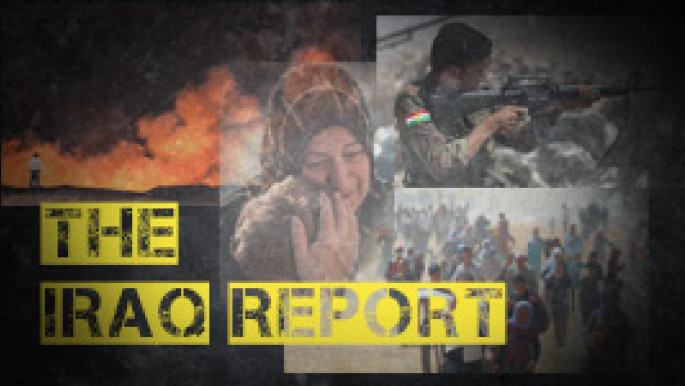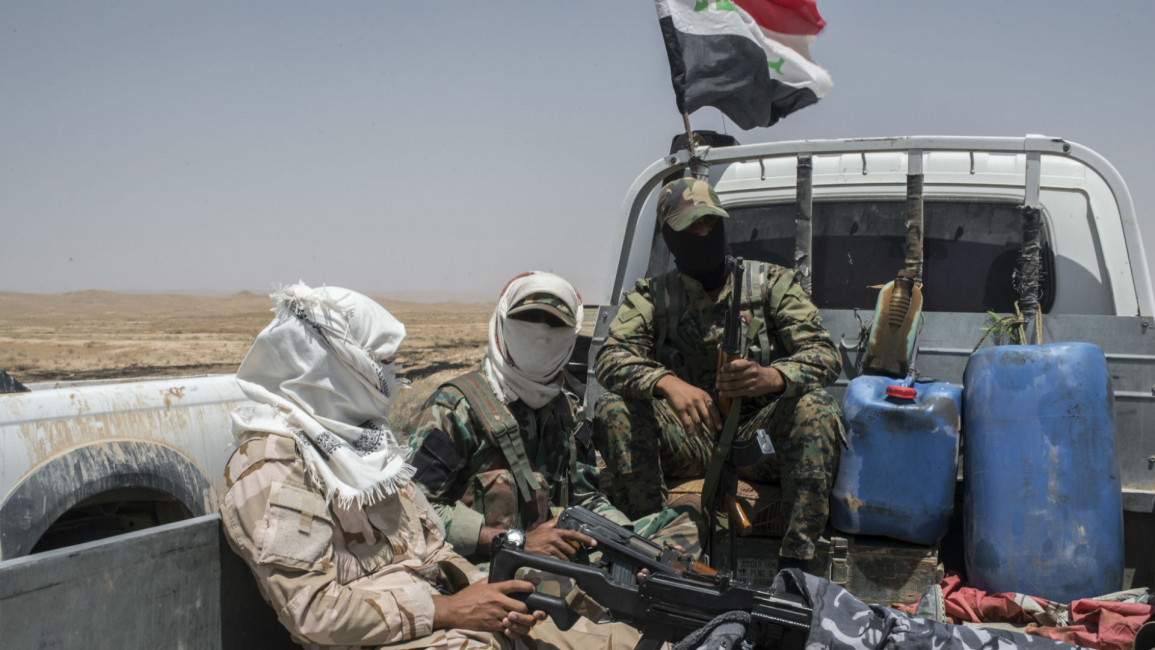Prime Minister Abadi bans Iraq militia leaders from elections
Prime Minister Abadi bans Iraq militia leaders from elections
Abadi has banned militia leaders from standing in next year's elections, as the Iraqi prime minister attempts to limit the power of paramilitary forces.
2 min read
Iraq's paramilitary forces were key to the defeat of IS [Getty]
Iraq militia leaders will not be allowed to stand in next year's provincial and national elections, Prime Minister Haider al-Abadi said this weekend.
His comments come amid fears of the growing power and influence of Iran and paramilitary forces in Iraq, following the defeat of the Islamic State group.
In an attempt to limit their influence in national politics, Abadi has said militia leaders must lay down their arms and enter civilian life if they wish to stand in elections.
"There must be a clear separation between political and armed groups," the prime minister warned on the weekend.
"It's vital that people choose the politicians that they want... The government's anti-corruption campaign requires unity of all Iraqis in order to combat this issue, just like our defeat against IS."
Abadi came to power in 2014, promising to rein in the rampant corruption that thrived under his predecessor Nouri al-Maliki.
With little progress made in stamping out graft, Iraqis took to the streets to protest against frequent power cuts.
These died down with the Iraqi army's offensive against IS, which relied on the crucial support of Shia militias, who joined forces under the umbrella formation the Iranian-backed Popular Mobilisation Forces or Hashd al-Shaabi.
Their lead role in the battles against IS and status as a quasi-independent army force has given Tehran an ever stronger role in the country.
Iraq's political leadership hope next May's elections will bring some harmony to the country and embolden the civilian government.
Iraq's last parliamentary elections were held in April 2014, which saw Maliki's Shia-dominated party win and form a coalition with smaller parties.
Abadi will have to deal with security issues, continued corruption, internal power feuds, and the issue of Iraqi-Kurdistan's independence bid as he prepares for the elections slated for 12 May.
The Iraq Report is a weekly feature at The New Arab.
Click here to receive The Iraq Report each week in your inbox
His comments come amid fears of the growing power and influence of Iran and paramilitary forces in Iraq, following the defeat of the Islamic State group.
In an attempt to limit their influence in national politics, Abadi has said militia leaders must lay down their arms and enter civilian life if they wish to stand in elections.
"There must be a clear separation between political and armed groups," the prime minister warned on the weekend.
"It's vital that people choose the politicians that they want... The government's anti-corruption campaign requires unity of all Iraqis in order to combat this issue, just like our defeat against IS."
Abadi came to power in 2014, promising to rein in the rampant corruption that thrived under his predecessor Nouri al-Maliki.
With little progress made in stamping out graft, Iraqis took to the streets to protest against frequent power cuts.
These died down with the Iraqi army's offensive against IS, which relied on the crucial support of Shia militias, who joined forces under the umbrella formation the Iranian-backed Popular Mobilisation Forces or Hashd al-Shaabi.
 |
|
| Catch up with our weekly round-up from Iraq |
Iraq's political leadership hope next May's elections will bring some harmony to the country and embolden the civilian government.
Iraq's last parliamentary elections were held in April 2014, which saw Maliki's Shia-dominated party win and form a coalition with smaller parties.
Abadi will have to deal with security issues, continued corruption, internal power feuds, and the issue of Iraqi-Kurdistan's independence bid as he prepares for the elections slated for 12 May.
The Iraq Report is a weekly feature at The New Arab.
Click here to receive The Iraq Report each week in your inbox


![Minnesota Tim Walz is working to court Muslim voters. [Getty]](/sites/default/files/styles/image_684x385/public/2169747529.jpeg?h=a5f2f23a&itok=b63Wif2V)





![Israeli strikes on Beirut [Getty]](/sites/default/files/styles/image_330x185/public/2176155077.jpeg?h=a5f2f23a&itok=Xq7ypWgM)
